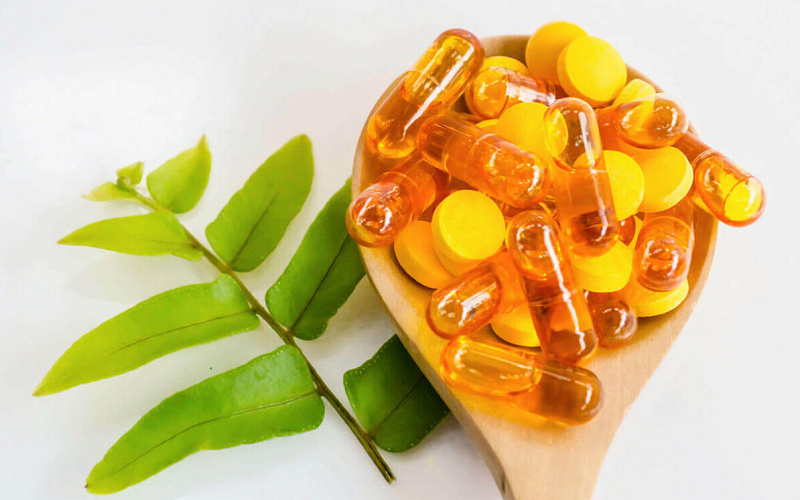Each of us have over 50 trillion cells in our body, and each of those cells requires energy to be able to perform the crucial tasks that need to be constantly carried out. Your body requires nutrients so that cells can grow, stay healthy, repair when damaged, make biochemical’s such as hormones and neurotransmitters, as well as keep your immune system strong to ward off the development of chronic diseases. Coenzyme Q10 plays a vital role in this process as we can see from the following basic benefits of this nutrient.
- CoQ10 helps in the replacement of old or damaged mitochondria so that our cells can stay healthy for as long as possible.
- CoQ10 acts as an antioxidant to protect the nucleus of the cell and the mitochondria from free radical damage from toxins like pesticides and air pollution.
- CoQ10 works in the energy centers in our cells called the mitochondria to facilitate the energy production process. Most enzymes play this role as facilitators.
CoQ10 for the prevention and reversal of disease
Some organs in our bodies need more energy than others because they are required to work 24/7: the brain, the heart, the liver and the kidneys are good examples. Other body parts like skin, muscles and bones get a chance to rest and thus need much lower levels of mitochondria and energy. If there is not enough energy being produced for the most important organs then they can become weak and damaged over time. Here are some examples from clinical studies about how CoQ10 has been able to play a key role in the prevention and even the reversal of certain illnesses.
- Several clinical studies have been able to prove that Parkinson’s disease can be significantly slowed down using high doses of CoQ10.
- Several clinical trials have been shown to help patients prevent and even reverse heart disease using CoQ10 as part of a nutritional protocol.
- In a very famous clinical trial 50 percent of patients with kidney disease were able to be taken off of their dialysis after taking 180 mg of CoQ10 for three months.
These studies certainly prove CoQ10 provides the means to reduce or replace the need for expensive prescription medications, reduce the need for medical treatments, and even reduce the need for surgeries . While the above studies are listed in several medical journals, there still seems to be resistance for the use of CoQ10. This may be caused by a resistance from hospitals and insurance companies, the influence of the drug industry, and a lack of education.
It is difficult to achieve therapeutic levels of CoQ10 from food alone because the best sources are red meat and dairy. The Harvard Food Pyramid does not support high amounts of these foods, so the best source for CoQ10 is usually supplementation.
Doctors like Richard Watkins recommend the ubiquinol form. as apposed to the ubiquinone form, of CoQ10 due to it having better absorption. And Life Extension Magazine has published an article that notes that selenium is a good pairing with CoQ10 due to it helping to increase and produce this powerful nutrient.

CoQ10 and Heart Diseases
There is also evidence that CoQ10 may have “significant cardiovascular protective effects” that could help prevent CVD (cardiovascular disease, also called heart disease). CVD is the leading cause of death in the world, as described in a recent study published in Cardiovascular Pharmacology: Open Access.
While these are interesting findings, messaging to patients about CoQ10, particularly in the popular media, is often misleading and confusing, leading to less than optimal results and poor supplement choice.
Other recent studies imply that CoQ10, whether alone or combined with other therapies, might be beneficial for several health conditions. Of course, as with all nutritional supplements, you should consult your medical provider before taking CoQ10 to see if its use is appropriate for you.
Cardiovascular disease (CVD). Recent studies show that CoQ10 supplements can significantly increase HDL-C and ApoA1 levels, even in people taking statins, and may help reduce risk for CVD. CoQ10 supplementation also lowers levels of inflammatory biomarkers shown to be risk factors for CVD, such as high-sensitivity C-reactive protein. Finally, low CoQ10 levels have been associated with greater tissue damage to the heart during a heart attack and the brain during stroke.
Statin-related muscle symptoms. Although statin therapy can significantly reduce heart attack and stroke risk, up to 25 percent of patients stop treatment within four months due to side effects, such as weakness and muscle aches. In a 2018 randomized clinical study published in Medical Science Monitor, 71 percent of statin users with muscle symptoms claimed reduced pain after taking CoQ10 twice daily for 28 days, versus no improvement in a control group. The researchers concluded that combining statin therapy with CoQ10 supplements could lead to higher compliance with treatment.
Heart failure (HF). CoQ10 was hailed as “the first new drug to improve heart failure mortality in over and decade” after a multi-center randomized study of 412 patients found that taking it reduced deaths in patients with severe HF by half, compared to a control group. The researchers tracked the patients for two years. The study was presented at the Heart Failure 2017 congress in Lisbon and later published in Journal of the American College of Cardiology Heart Failure.
After a heart attack. In a clinical trial, patients who received CoQ10 shortly after a heart attack had a much lower rate of additional cardiac events over the following year than a control group (25.8 percent versus 42.5 percent). Close to half the patients in both groups were taking a statin medication, causing researchers to note that treatment with CoQ10 in patients with heart attack could be of benefit in patients that had a high risk of atherothrombosis, even with lipid lowering therapy.
High blood pressure. In an analysis of 17 clinical studies, researchers noted that CoQ10 has the potential to lower systolic blood pressure by as much as 17.5 mm Hg and diastolic pressure by 12.2 mm Hg without significant side effects.



